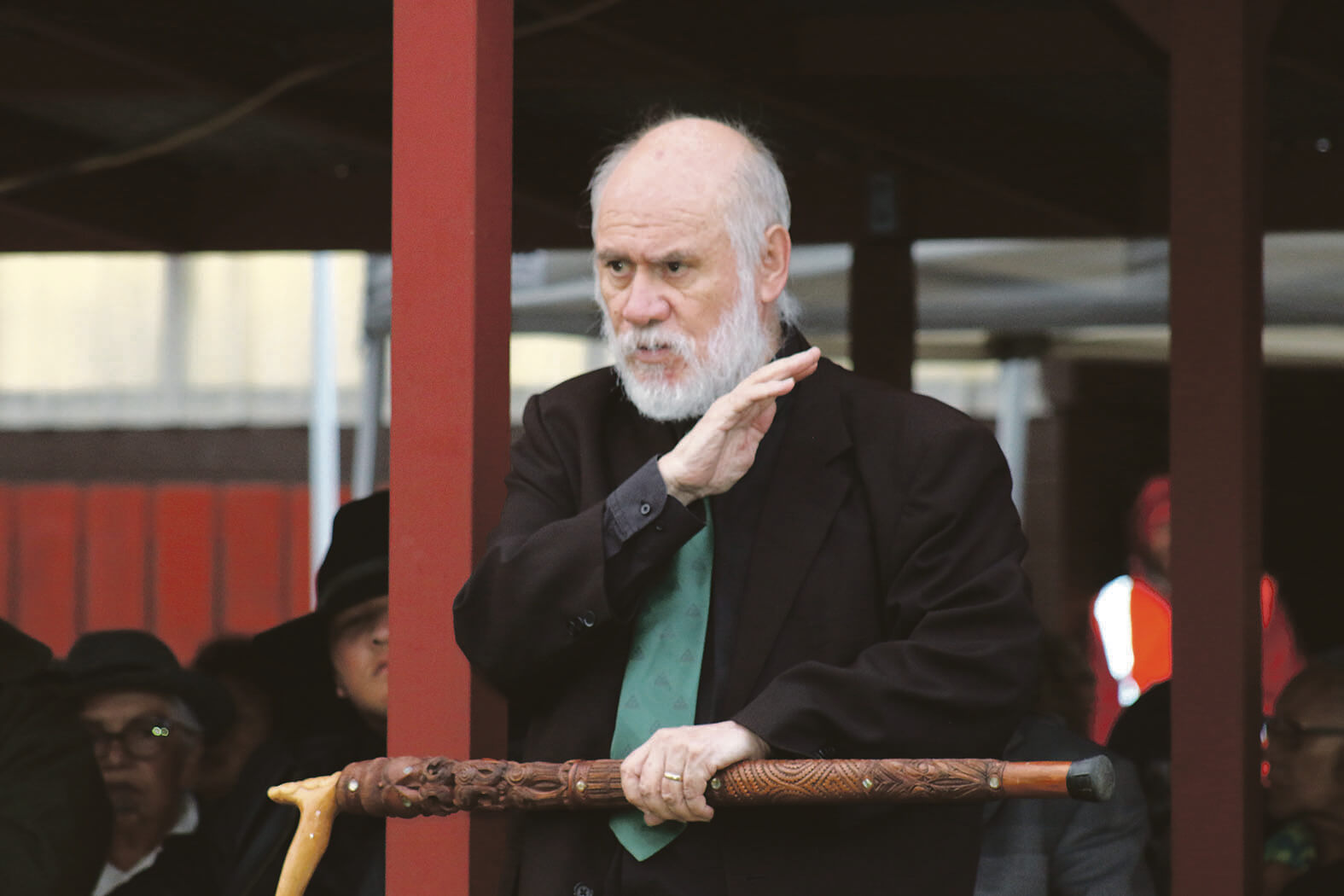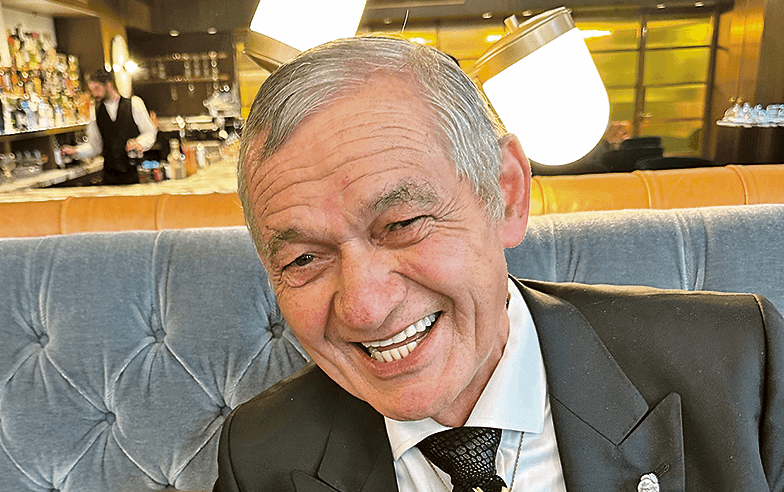Tēnā te whaitua nui, Ka pū te taha wānanga, Ha āpiti nuku, he āpiti rangi, Ha whakaotinga aroha ki a koe, Kīngi Tūheitia, Kīngi o Te Kotahitanga.

Academic Professor Tom Roa.
I write this as we are in the throes of farewelling our Māori King, Tuheitia. The speeches on behalf of the iwi, of the thousands who have gathered and continue to gather on Tūrangawaewae Marae have been memorable for their eloquence, but more for the genuine expressions of regret for his passing. One such sentiment was from the University of Waikato, given in Māori. Here is my translation: ‘Tuheitia – ancestor who became a taniwha; Tuheitia – ordinary man who became a King; Tuheitia – truck driver who became a Doctor of Philosophy’, having been awarded the very highest honour a University can bestow on anyone.
Another recognised how uncomfortable Tuheitia clearly was when he was selected by the Rangatira o Te Motu to be their King, and how he was considered to be ‘the man for the job’, who grew into the role over time and affected ‘the job for the man’.
This is perhaps a major point of difference with the Kīngitanga – the Māori King Movement – and all other monarchies; kingdoms; empires. Those kingdoms and empires were established by military conquest, the leader of the strongest of the warring ‘tribes’ promoted by their ‘tribe’ as the monarch, king/queen or emperor/empress.
Over the period of the tangihanga, dignitaries from near and far, will gather to pay their respects. Today – Thursday – the Rangatira o Te Motu – the Chiefs of The Land – will meet in Turangawaewae to decide who will be the King Tuheitia’s successor. Tainui Waka – Waikato – Maniapoto – Raukawa – Hauraki will play no part in those discussions, asserting that we are the guardians of the Kīngitanga, which is the Taonga o Te Motu.
Kingi Tuheitia’s calling for unity has captured the attention of many locally, nationally, internationally. A legacy recognised in his being referred to widely as ‘Te Kīngi o Te Kotahitanga’ – the King of Unity, a legacy to which speakers have expressed their personal as well as tribal commitment.
Ka tauwehe te Pō, ka pō, Pō, ka ao, ka awatea, Paimārire ki a tātou katoa.

Kiingi Tuheitia








